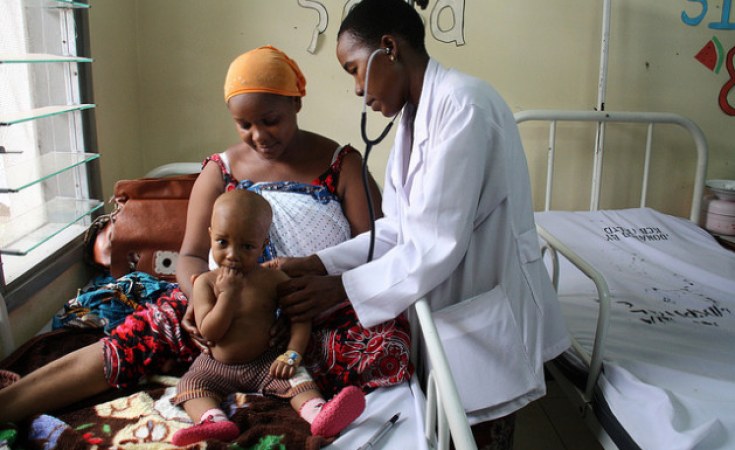Atlanta, Georgia — The world is winning the fight to keep children alive, and preventable child deaths may, at some point in the near future, be a thing of the past, according to Carolyn Miles, president and CEO of Save the Children.
"The tide is turning on child survival,” said Miles as she opened the 61st annual meeting of the American Society of Tropical Medicine and Hygiene in Atlanta. “In 2011, for the first time, annual deaths of children under five years old fell below seven million – that's a reduction of 41 percent in 20 years, and progress is accelerating… I believe we can see near zero preventable child deaths in our lifetime."
Reducing the under-five child mortality rate by two-thirds between 1990 and 2015 is one of the eight United Nations Millennium Development Goals. The UN says death rates are falling but not quickly enough to reach that target.
In her keynote speech, “Newborn and Child Survival: The Winnable Fight”, Miles said that, although more children are reaching their fifth birthday, there are still about 19,000 others who die every day from preventable and treatable illnesses, such as pneumonia, malaria and diarrhea.
Forty percent of child deaths occur in the first month of life, she said.
"More than one million preterm babies die shortly after birth every year, but 75 percent of these deaths could be avoided if inexpensive, simple prevention and treatment tools are available to mothers and practitioners around the world," Miles said.
She cited some of the most effective interventions as Kangaroo Mother Care, which involves keeping the infant against the mother to keep babies warm, newborn resuscitation to get them breathing, and awareness of danger signs to trigger treatment for possible severe bacterial infections.
In addition, Miles said community-based care and home visits are making a difference. Seventy-seven countries, including Malawi, have reduced their newborn mortality rate by more than 25 percent with early intervention.
"If we can give a newborn the healthiest possible start in life, we give him a better chance at a healthy and resilient childhood – and a much stronger opportunity to grow into a healthy adult," she said.
Miles also noted the importance of good nutrition. Without it, children are more vulnerable to illnesses. She said malnutrition is considered to be the underlying cause of more than 2.6 million child deaths every year.
In addition, 170 million children – one in four children around the world – are stunted due to malnutrition, and their bodies and minds have suffered permanent, irreversible damage.
“They are physically smaller, they fall behind academically, and they will grow up to earn an estimated 20 percent less than their peers,” Miles said.
She said in developing countries this translates into a loss of two to three percent GDP every year.
But she said simple interventions, known as the “lifesaving six” can improve nutrition and save lives. They are: iron folate supplements to address anemia; exclusive breastfeeding; complementary feeding of nutritious foods for toddlers; vitamin A; zinc to prevent diarrhea; and access to clean water, basic sanitation and hygiene.
Miles said one major challenge to saving the lives of children is access to healthcare. Therefore, the global health community is bringing the clinic to the patient through Integrated Community Case Management (CCM).
It introduces locally-led, quality healthcare to remote communities with the greatest need, but implementation is challenging, she said, because it requires trained and skilled frontline health workers, who Miles referred to as “the armed forces” of global health.
“They are the first-responders, the boots-on-the-ground,” she said.
“They are the reason that a scientific breakthrough in a lab here in Atlanta can save the life of a four-year-old girl in Botswana.”
To honor these workers, Save the Children and several of its partners has launched the REAL Awards. The public, through November 29, can visit the website to learn about some of the frontline health workers, or to nominate one to be considered for an award.


